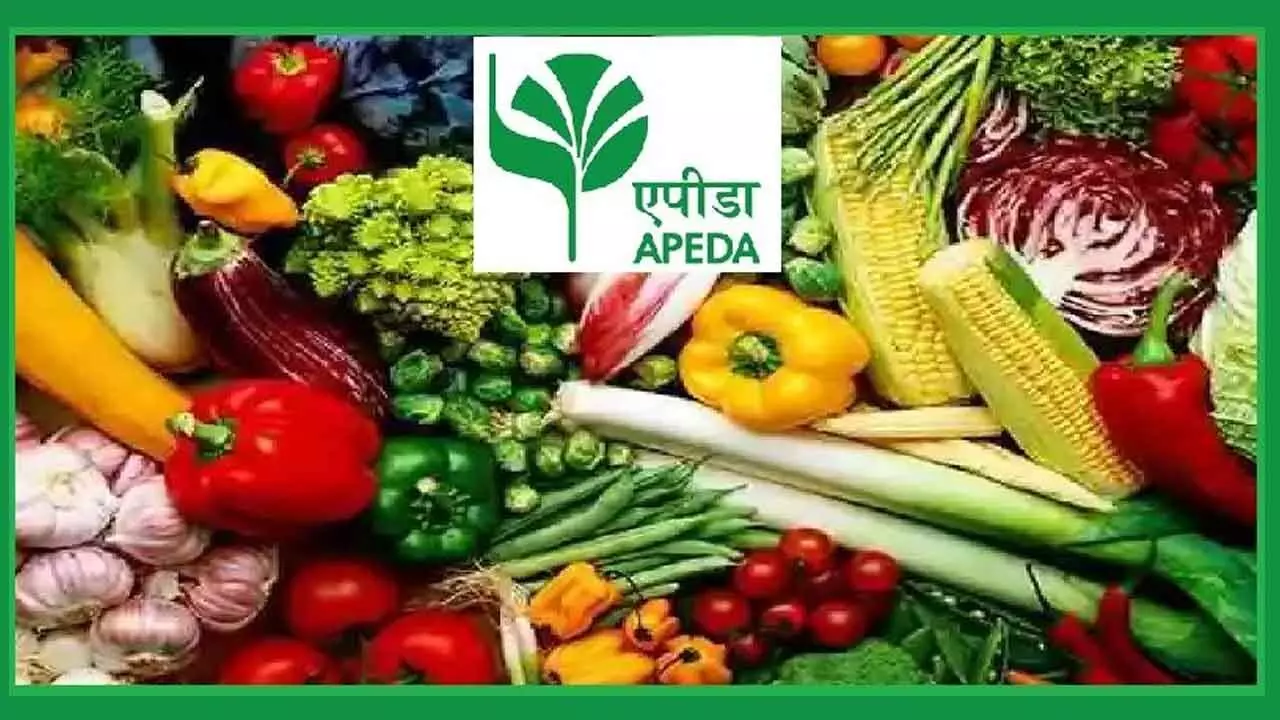Govt To Ease Logistical Barriers For Agri And Processed Food Products
APEDA develops industries into scheduled products for export by providing financial assistance
Govt To Ease Logistical Barriers For Agri And Processed Food Products

Academia and research institutions must be a part of multisectoral consultations so that R&D can be a major focus for innovation and sustainability in agri exports: Sunil Barthwal
The Central government is committed to reducing logistical barriers and enhancing market access for Indian agri and processed food products.
This was stated by Sunil Barthwal, Secretary Department of Commerce, in his address at a high-level Chintan Shivir organized by Agricultural & Processed Food Products Authority (APEDA) in New Delhi.
APEDA undertakes development of industries relating to the scheduled products for export by way of providing financial assistance or otherwise for undertaking surveys and feasibility studies, participation in enquiry capital through joint ventures and other reliefs and subsidy schemes; registration of persons as exporters of the scheduled products on payment of such fees as may be prescribed; Fixing of standards and specifications for the scheduled products for the purpose of exports; Carrying out inspection of meat and meat products in slaughterhouses, processing plants, storage premises, conveyances or other places where such products are kept or handled for the purpose of ensuring the quality of such products and improving packaging of the scheduled products.
Barthwal pointed out that “Academia and research institutions must be a part of multisectoral consultations so that R&D can be a major focus for innovation and sustainability in agri exports.”
He emphasised that agricultural productivity is the need of the hour. He reaffirmed the ministry’s commitment to further deliberate on the ideas and strategies discussed during the sessions.
The consultative dialogue brought together senior officials from the central ministries, representatives from state governments, policy experts, industry leaders from agri trade and processed foods sector to deliberate on strategies for enhancing the export of agricultural and processed food products from India.
The inaugural session of the Chintan Shivir was co- chaired by Sunil Barthwal, Secretary of Department of Commerce, and Subrata Gupta, Secretary of Ministry of Food Processing Industries (MoFPI).
The session was also graced by the Special Secretary, Department of Commerce Rajesh Agrawal, Additional Secretary, Department of Animal Husbandry & Dairying, Varsha Joshi, and other senior officers of the Union and State governments, policymakers and industry leaders.
In his opening remarks, Subrata Gupta highlighted the importance of infrastructure development and value addition to ensure sustainable export growth. He emphasised that there is a need to develop infrastructure, sanitary and phytosanitary standards at par with international norms, tariff plans and more synergy between Union Government, State Government, various departments and industry stakeholders. He identified key potential products and sectors for processed foods exports like alcoholic beverages, nutraceuticals and value-added products.
Rajesh Agrawal emphasized the critical role of synergistic efforts among Union government, State Government, industry stakeholders and farming communities in realizing India’s agri-export potential. He stressed the need to have a more synergetic approach amongst various stakeholders to take new agriculture, processed food and value-added products to new geographies.
The Shivir was divided into five parallel technical breakout sessions focusing on specific agri-trade commodities and processed food sectors. The session on basmati and non-basmati saw the participation of Punjab, Haryana and Telangana and industry giants like LT Foods and KRBL. The discussion addressed export barriers, financial and policy support and branding strategies for Indian rice.
Horticulture with the participation of Maharashtra, Tamil Nadu and Andhra Pradesh, and companies such as Kaybee, explored ways to enhance quality, improve logistics, and strengthen industry-academia linkages.
Processed foods involved stakeholders like Britannia and Haldiram’s and focused on value addition, regulatory streamlining and branding of Indian products globally. The organic products session was marked by discussion on expanding India’s footprint in global organic markets with contributions from Organic India, AMUL, ITC, and regulatory bodies like FSSAI. (PIB)

